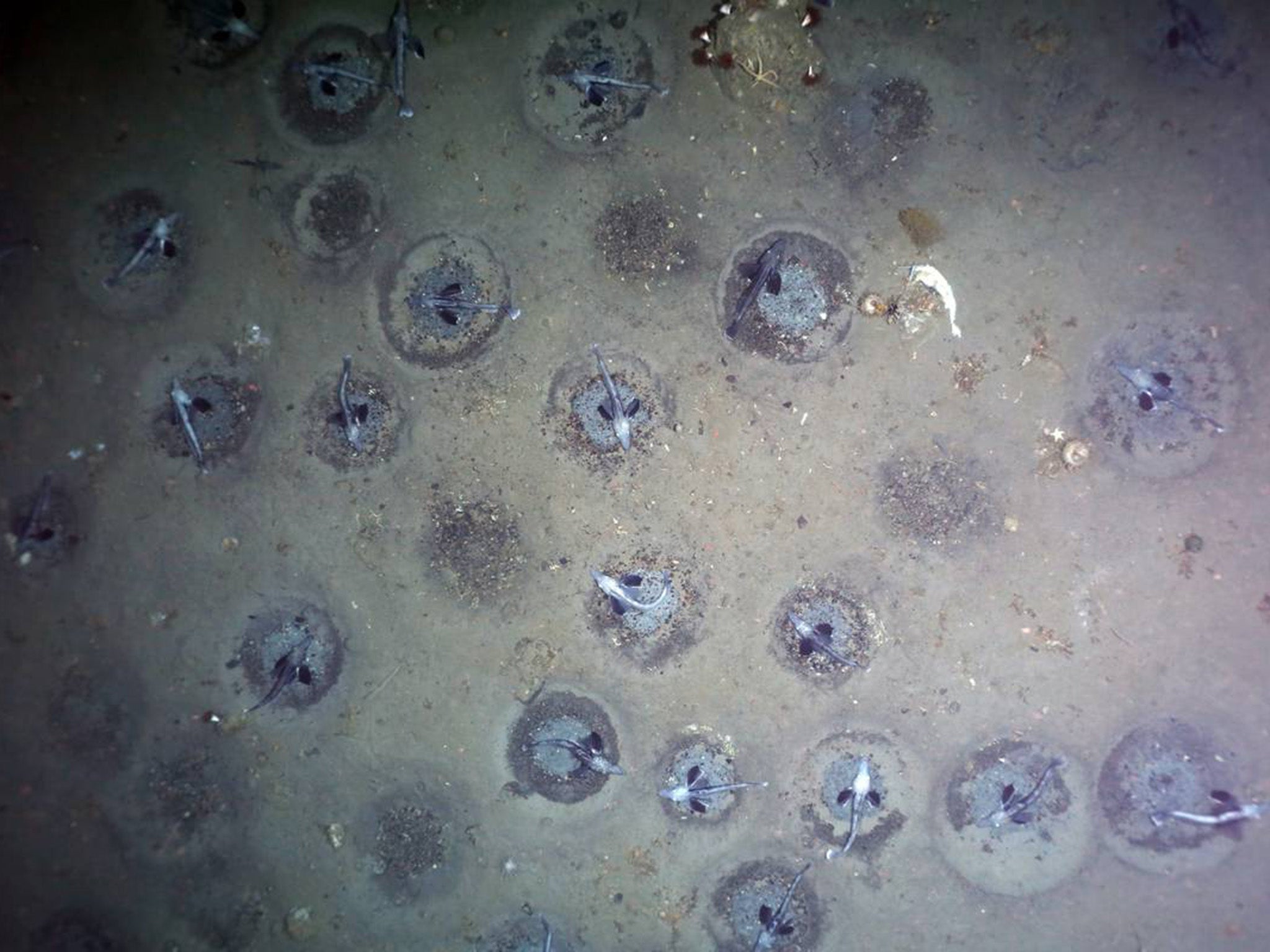World’s largest fish breeding ground discovered in Antarctica with 60 million nests
‘Fascinating’ discovery makes case for better conservation, say researchers
Your support helps us to tell the story
From reproductive rights to climate change to Big Tech, The Independent is on the ground when the story is developing. Whether it's investigating the financials of Elon Musk's pro-Trump PAC or producing our latest documentary, 'The A Word', which shines a light on the American women fighting for reproductive rights, we know how important it is to parse out the facts from the messaging.
At such a critical moment in US history, we need reporters on the ground. Your donation allows us to keep sending journalists to speak to both sides of the story.
The Independent is trusted by Americans across the entire political spectrum. And unlike many other quality news outlets, we choose not to lock Americans out of our reporting and analysis with paywalls. We believe quality journalism should be available to everyone, paid for by those who can afford it.
Your support makes all the difference.The world's largest fish breeding ground has been discovered in Antarctica.
Around 60 million icefish nests were found on the ocean floor in the south of the Weddell Sea.
The nests were concentrated in a 92-square-mile area – around the size of Kettering – and there were sometimes two per square metre. Each nest contained up to 2,500 eggs.
Researchers on the German research vessel Polarstern came across the breeding ground by accident when carrying out routine observations with a camera towed up to 535m underwater.
The Alfred Wegener Institute (AWI) has been exploring the Weddell sea since the early 1980s but until this discovery had only ever found small clusters of nests.
“The idea that such a huge breeding area of icefish in the Weddell Sea was previously undiscovered is totally fascinating,” says Dr Autun Purser, deep-sea biologist at the AWI.
He added: “After the spectacular discovery of the many fish nests, we thought about a strategy on board to find out how large the breeding area was — there was literally no end in sight.”

The area of the breeding ground was known to the researchers for a process called upwelling, where cold water rises to the surface and leaves the deeper parts warmer.
It was found to be a popular destination for Weddell seals. The researchers tracked a number of seals and found that 90 per cent of their diving took place around the nests.
Dr Purser said: “A great many seals spend much of their time in close proximity to the fish nests.
“We know this from historical tracking data and fresh tracking data from our cruise. The nests are exactly where the warmer water is upwelling.
“These facts may be coincidence, and more work is needed, but the recorded seal data show seals do indeed dive to the depths of the fish nests, so may well be dining on these fish.”
Researchers said the discovery of the breeding grounds showed that marine conservation in Antarctica needs to be improved.
A proposal to restrict human activity by creating a Marine Protected Area (MPA) in the Weddell Sea has been around for years but has yet to secure full backing from the Antarctic ocean conservation body.
Antje Boetius, AWI director and a professor of deep-sea biology, said international partners needed to work together to “ensure that no fishing and only non-invasive research takes place there”.
“So far, the remoteness and difficult sea ice conditions of this southernmost area of the Weddell Sea have protected the area, but with the increasing pressures on the ocean and polar regions, we should be much more ambitious with marine conservation.”
The AWI’s findings were published in Current Biology.
Want us to report on an issue that matters to you? Contact us by clicking here

Join our commenting forum
Join thought-provoking conversations, follow other Independent readers and see their replies
Comments